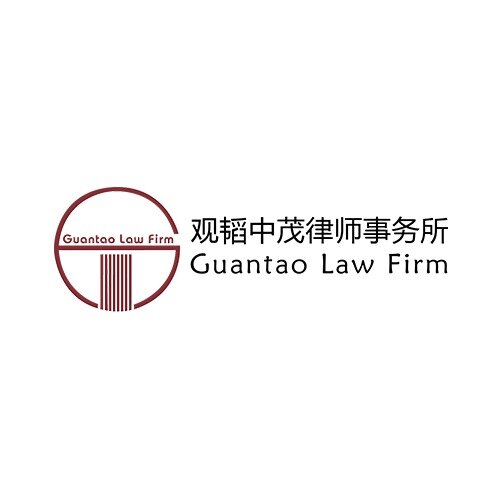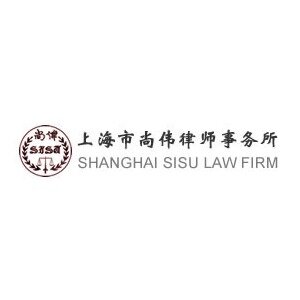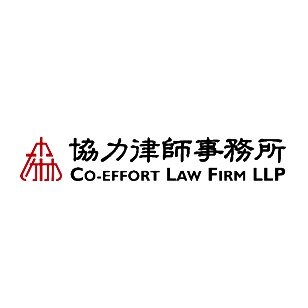Best Creditor Lawyers in China
Share your needs with us, get contacted by law firms.
Free. Takes 2 min.
Or refine your search by selecting a city:
List of the best lawyers in China
About Creditor Law in China
Creditor law in China pertains to the rights and responsibilities of creditors, individuals, or entities to whom money is owed by debtors. This area of law governs how creditors can exercise their rights to recover debts from borrowers while ensuring compliance with legal obligations. Creditor law encompasses various aspects, including secured and unsecured transactions, debt restructuring, insolvency proceedings, and enforcement actions. China’s legal framework aims to balance creditors' interests with debtor protections, ensuring a fair and efficient financial system.
Why You May Need a Lawyer
Engaging a lawyer experienced in creditor law in China is crucial in several situations, such as:
- Enforcing debt recovery: When facing challenges in collecting outstanding debts, legal assistance can help navigate the complexities of enforcement actions.
- Contract drafting and negotiation: Lawyers ensure that credit agreements are legally sound, protecting your interests in creditor-debtor relationships.
- Participating in insolvency proceedings: Legal counsel is essential to advocate for your rights and maximize recovery during debtor insolvency or bankruptcy.
- Dispute resolution: In case of disputes, lawyers can represent your interests and strive for favorable settlements or court judgments.
- Advisory services: Legal experts offer guidance on compliance with local laws and regulations affecting creditor activities.
Local Laws Overview
Several key laws in China affect creditor rights and responsibilities:
- The Contract Law of the People's Republic of China: It provides the legal basis for creditor-debtor agreements and outlines enforcement measures for breaches.
- The Enterprise Bankruptcy Law: Governs insolvency and liquidation proceedings, detailing creditor participation and claims prioritization.
- The Civil Code: Encompasses general principles of civil rights and obligations, including creditor rights concerning property and obligations.
- Secured Interests Law: Regulates secured transactions, detailing the registration, perfection, and enforcement of security interests.
- Local judicial interpretations and guidelines: Provide context-specific rules and procedures applicable to creditor issues within specific jurisdictions.
Frequently Asked Questions
What rights do creditors have in China?
Creditors have the right to demand repayment, enforce security interests, participate in insolvency proceedings, and take legal actions for debt recovery.
How does one enforce a judgment for debt recovery in China?
Judgments can be enforced through the court system, where creditors can seek to seize debtor assets, garnishee wages, or implement other enforcement measures.
What is the difference between secured and unsecured creditors?
Secured creditors have collateral tied to the loan, giving them priority in debt collection. Unsecured creditors have lower priority and no specific claim to debtor's assets.
What is the process for debt restructuring in China?
Debt restructuring involves negotiating new repayment terms with debtors, potentially reducing the principal, extending payment periods, or adjusting interest rates.
Can foreign creditors pursue debt recovery in China?
Yes, foreign creditors can seek debt recovery in China, typically requiring legal representation familiar with local practices and laws.
What is the role of the People's Court in creditor disputes?
The People's Court adjudicates disputes between creditors and debtors, issues judgments, and facilitates enforcement actions.
Are there time limitations for commencing creditor legal actions?
Yes, the statute of limitations typically ranges from two to three years, depending on the nature of the claim, which may require timely legal action.
How are creditor claims prioritized in insolvency proceedings?
Creditor claims are prioritized based on secured interest, legal fees, employee wages, taxes, and unsecured debts, among others.
Can a creditor sell a debtor’s assets without court intervention?
Generally, creditors require court authorization to seize and sell a debtor's assets unless specific exceptions apply, such as under a secured transaction agreement.
What recourse is available if a debtor challenges a repayment demand?
Creditors can resolve disputes through negotiation, mediation, or legal action, potentially leading to court adjudication or settlement.
Additional Resources
For additional support and information, consider these resources:
- China International Economic and Trade Arbitration Commission (CIETAC): Offers arbitration services for international commercial disputes.
- Local Bar Associations: Provide legal referral services and resources for finding qualified creditor law practitioners.
- National Enterprise Bankruptcy Information Disclosure Platform: Supplies information relevant to bankruptcy cases and proceedings.
- Governmental legal aid centers: Offer advice and resources to individuals seeking legal assistance in various areas, including creditor matters.
Next Steps
If you require legal assistance in creditor law in China, consider these steps:
- Consult with a lawyer specialized in creditor law to review your situation and explore available legal remedies.
- Gather relevant documentation, including contracts, communication records, and financial statements, to facilitate legal advice.
- Explore mediation or arbitration options as alternative dispute resolution mechanisms, if applicable.
- Consider engaging legal services for debt recovery, contract negotiations, or representation in court proceedings.
- Educate yourself on pertinent laws and regulations to better understand your rights and obligations as a creditor.
Lawzana helps you find the best lawyers and law firms in China through a curated and pre-screened list of qualified legal professionals. Our platform offers rankings and detailed profiles of attorneys and law firms, allowing you to compare based on practice areas, including Creditor, experience, and client feedback.
Each profile includes a description of the firm's areas of practice, client reviews, team members and partners, year of establishment, spoken languages, office locations, contact information, social media presence, and any published articles or resources. Most firms on our platform speak English and are experienced in both local and international legal matters.
Get a quote from top-rated law firms in China — quickly, securely, and without unnecessary hassle.
Disclaimer:
The information provided on this page is for general informational purposes only and does not constitute legal advice. While we strive to ensure the accuracy and relevance of the content, legal information may change over time, and interpretations of the law can vary. You should always consult with a qualified legal professional for advice specific to your situation.
We disclaim all liability for actions taken or not taken based on the content of this page. If you believe any information is incorrect or outdated, please contact us, and we will review and update it where appropriate.
Browse creditor law firms by city in China
Refine your search by selecting a city.














